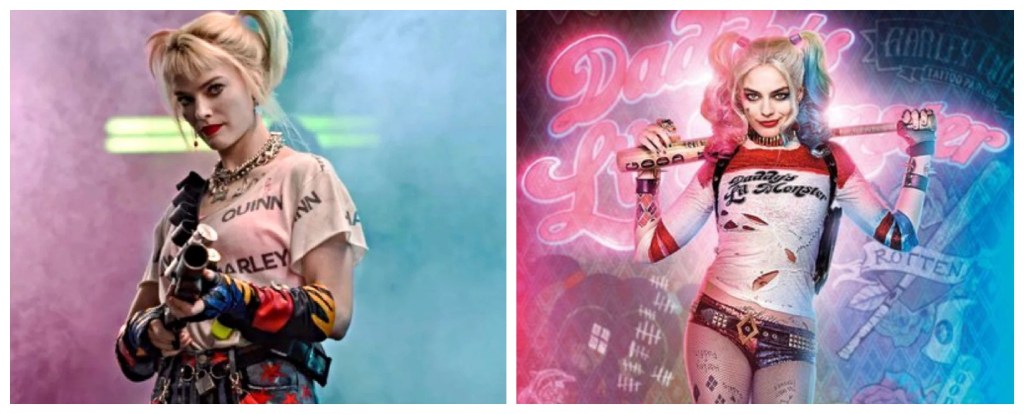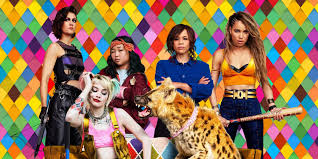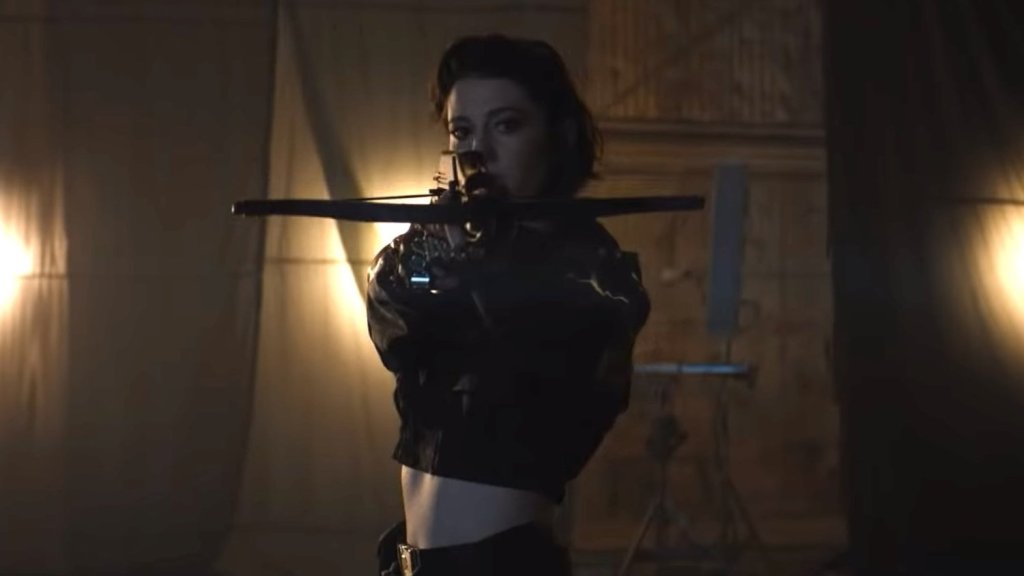I’ve always had a fondness for the Harley Quinn character. From her Batman: The Animated Series origins to roles in Gotham video games and an array of comic books, the clownish screwball henchman with the Brooklyn accent and surprisingly grim backstory has managed to feel both delightfully absurd and sporadically tragic. I even had a certain cautious optimism to see Margot Robbie bring her to life in 2016’s Suicide Squad. Alas, that film was a headache-inducing mess, with Robbie’s giddily psychotic take on Harley Quinn emerging as its sole bright spot. With Birds of Prey (and the Fantabulous Emancipation of One Harley Quinn), Cathy Yan’s gleefully bloody, action-packed, girl-power championing movie, Harley finally finds herself in a vehicle worthy of her appeal.
Perhaps Birds of Prey’s niftiest trick is its ability to salvage the character from the Titanic-esque disaster that was Suicide Squad. She was wasted, but you could see the flickering of a better film clamoring to break free of a narrative undeserving of her enticing brand of crazy. In Suicide Squad, Harley is completely defined by her relationship with the Joker. Her “Daddy’s Lil Monster” shirt screamed she was someone’s property. This time, Jared Leto’s Joker, although frequently referenced, is blessedly absent from the screen, and Harley (Robbie again) gets to take control of her own story, and she has a shirt that with her name in a bold, eye-catching font.

Harley and her beloved “Mistah J” have finally called it quits. She copes the way any woman would: get a new haircut, watch a lot of TV, weep uncontrollably, buy a new pet, consume far too much canned cheese, and make a melodramatic show of how much you’ve moved on. In her case, she impulsively decides to blow up the chemical factory where she and Joker finally became a couple. Unfortunately, she failed to realize that being The Joker’s girlfriend gave her a certain immunity. Her very public, fiery attempt at closure serves as a declaration that there’s open season on taking her down. A queue of vengeful individuals come at her fast and furious, especially Roman Sionis aka Black Mask (Ewan McGregor) and his dour, devoted sidekick Victor Zsasz (Chris Messina), who gives new meaning to the term “face-off.”
Winding up in Roman’s clutches thrusts Harley into the path of the women who will eventually form the titular Birds of Prey: Renee Montoya (Rosie Perez), a female GCPD officer who’s becoming increasingly embittered at seeing inferior male officers rise above her in rank; Dinah Lance aka Black Canary (Jurnee Smollett-Bell), who possesses some impressive fighting skills and a “killer voice”; and Cassandra Cain (Ella Jay Basco), a young pickpocket who finds herself at the heart of another manhunt. Eventually, Huntress (Mary Elizabeth Winstead), an assassin who’s deadly with a crossbow stumbles into the narrative as well.

The film’s storyline is as schizophrenic and disheveled as Harley’s fractured psyche. Really, though, following a plot-driven path is completely the wrong approach to take with this film. Its anarchic spirit, animated asides, frenetic pace and everything-but-the-kitchen-sink approach puts it more in line with a feminism-centered Deadpool. However, what makes Birds of Prey significant involves its ethnically diverse, female-centered leanings, both behind and in front of the camera make the film feel like such a welcome breath of fresh air.
Director Cathy Yan is a relative newcomer, with only the movie Dead Pigs to her name. She has a good feel for her characters here, giving the female characters in particular a natural, sparkly chemistry with one another. Beyond that, Yan’s feverish, candy-colored visuals lend Birds of Prey a distinctive, lush look. Christina Hodson’s screenplay is over-stuffed, but in such strange, non-linear, entertaining ways that it seems petty to pick on it. It’s jokes land well, and her characterizations are spot-on. For fight sequences, John Wick alum Chad Stahelski lends his experienced hand to the choreography, crafting some truly visceral and gruesome fight scenes that are coupled with a cheery kookiness.
Robbie, also a producer on Birds of Prey, seems to be having a great time. She has the comedic chops to make Harley an enjoyably daffy villainess. McGregor prances and preens as a character who’s basically a misogynist’s id, managing to be both an absurdly over-the-top fop and a menacing psychopath. He’s the embodiment of the type of man who’s never been forced to endure boundaries or restraint. There’s no Batman in sight, but Black Mask serves as kind of a funhouse version, as he’s a man of privilege who took his wealthy family’s seeming slight as inspiration to become Gotham City’s ultimate crime lord.

The film’s secret weapon may be Winstead’s stoic, socially uncomfortable Huntress, who stumbles into the film’s wackiness and is more than a bit disoriented by the insanity surrounding her. Perez also does strong work, using her character’s grittiness to kind of ground the film’s over-the-top impulses.
If the film has a weakness, it’s that it takes such a long time to unite the titular Birds. Watching them interact with each other is so much fun, I wish they had a bit more time together, but this is a minor quibble for a movie that is such good fun.
Mixing vicious violence with absurdist non-sequiturs is a delicate balance to maintain, but Birds of Prey manages to land its tonal balancing more that it falters. Instead, the film is celebration of its female characters, and a critique of male entitlement and the causal ways in which male mediocrity is rewarded above female competence. The title may only focus on Harley Quinn’s emancipation, but all the lead characters are seeking their own kinds of independence, only to find they might work better together than solely relying on themselves (or another man).
Between this film, Aquaman, Shazam, and the upcoming Wonder Woman sequel, it appears as though Warner Brothers has abandoned the dour, grim slogs of their past superhero efforts, now focusing on bright, colorful films that favor humor and an actual color palette beyond grays and blacks. It’s nice to have films that at least seem to recognize that sunshine exists. It’s taken some time, but it seems the DCEU may finally be back on track.

